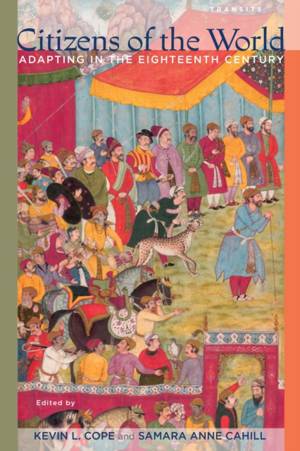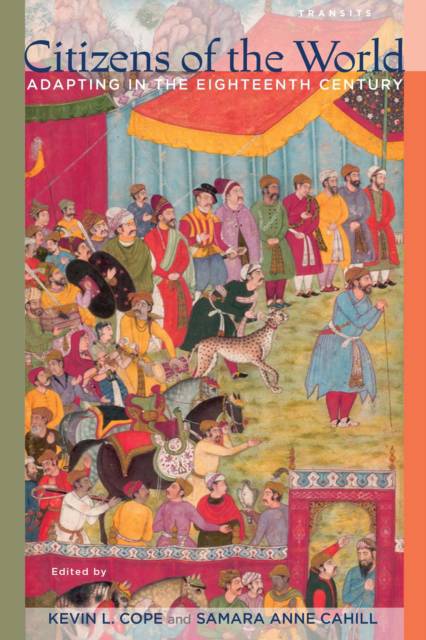
- Afhalen na 1 uur in een winkel met voorraad
- Gratis thuislevering in België vanaf € 30
- Ruim aanbod met 7 miljoen producten
- Afhalen na 1 uur in een winkel met voorraad
- Gratis thuislevering in België vanaf € 30
- Ruim aanbod met 7 miljoen producten
Zoeken
Citizens of the World
Adapting in the Eighteenth Century
€ 195,45
+ 390 punten
Omschrijving
Encounters, whether first or subsequent or whether cultural, economic, or ideological, mark the beginning of an acquaintance and measure both similarities and differences. What happens after an opening encounter is the topic of Citizens of the World: Adaptingin the Eighteenth Century. Taking as its point of embarkation awareness of the mutuality of foreignness--of the unfamiliarity that characterizes all parties to a meeting of the minds, ways, or traditions--this exploratory volume considers the many approaches and strategies to adaptation in the Enlightenment and the long and complex process of reciprocal adjustment that created this enthusiastically outgoing era internationally. The eight essays of this volume examine four varieties of adaptation: the interdisciplinary, in which expanding realms of knowledge collide but cooperate; the transnational, in which longstanding traditions merge and hybridize; the gendered, in which personal identity and public pursuits negotiate; and the general, in which the adapting mentality energizes unprecedented efforts at ingenious recombination. Whether in cast-and-fired pottery or aboard imagined airships, adaptation, the authors in this volume demonstrate, all but defines a century in which the "all but" implies perpetual adjustment to everything else.
Specificaties
Betrokkenen
- Uitgeverij:
Inhoud
- Aantal bladzijden:
- 208
- Taal:
- Engels
- Reeks:
Eigenschappen
- Productcode (EAN):
- 9781611486841
- Verschijningsdatum:
- 14/05/2015
- Uitvoering:
- Hardcover
- Formaat:
- Genaaid
- Afmetingen:
- 157 mm x 236 mm
- Gewicht:
- 453 g

Alleen bij Standaard Boekhandel
+ 390 punten op je klantenkaart van Standaard Boekhandel
Beoordelingen
We publiceren alleen reviews die voldoen aan de voorwaarden voor reviews. Bekijk onze voorwaarden voor reviews.







